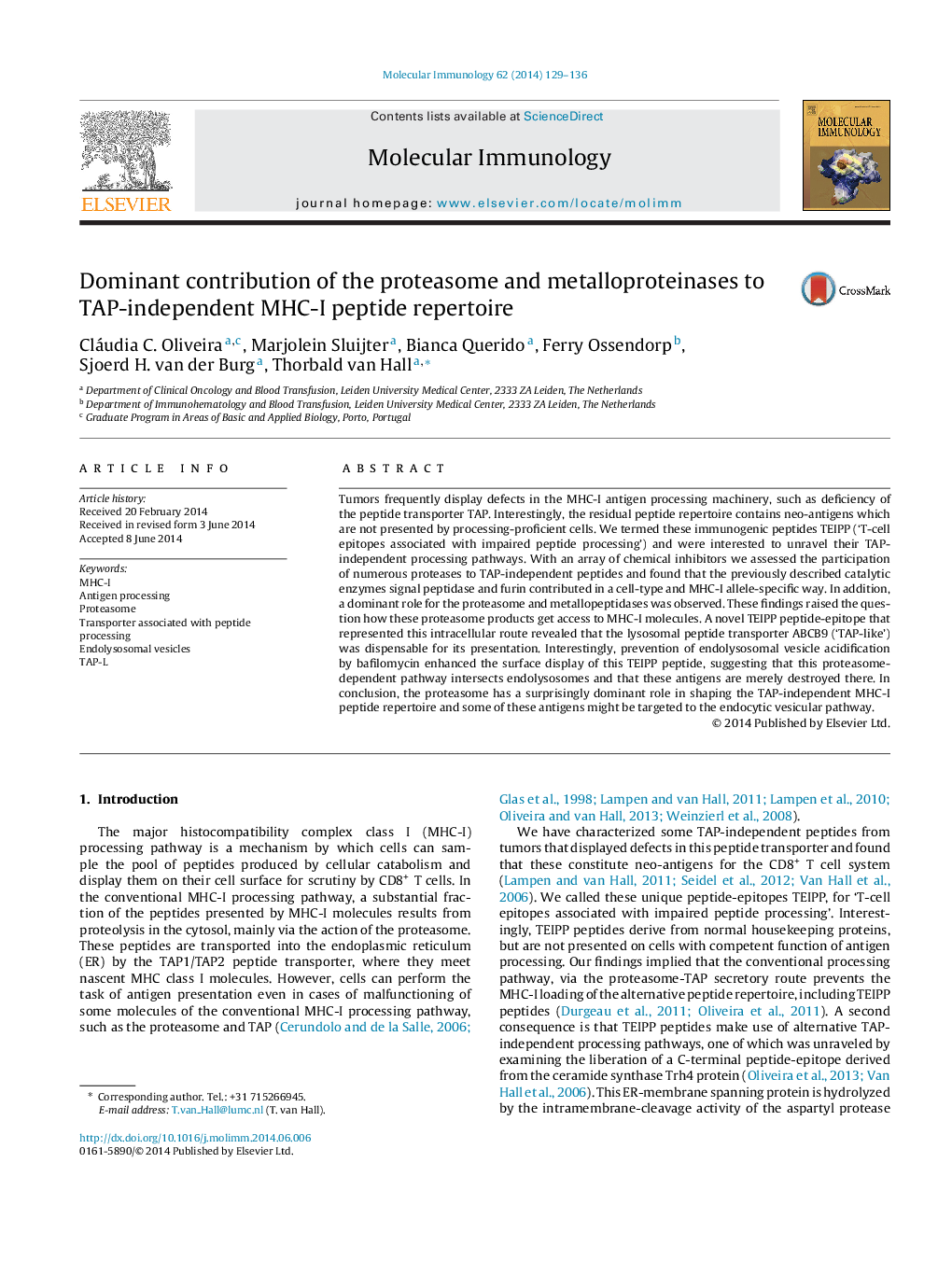| Article ID | Journal | Published Year | Pages | File Type |
|---|---|---|---|---|
| 5916782 | Molecular Immunology | 2014 | 8 Pages |
Abstract
Tumors frequently display defects in the MHC-I antigen processing machinery, such as deficiency of the peptide transporter TAP. Interestingly, the residual peptide repertoire contains neo-antigens which are not presented by processing-proficient cells. We termed these immunogenic peptides TEIPP ('T-cell epitopes associated with impaired peptide processing') and were interested to unravel their TAP-independent processing pathways. With an array of chemical inhibitors we assessed the participation of numerous proteases to TAP-independent peptides and found that the previously described catalytic enzymes signal peptidase and furin contributed in a cell-type and MHC-I allele-specific way. In addition, a dominant role for the proteasome and metallopeptidases was observed. These findings raised the question how these proteasome products get access to MHC-I molecules. A novel TEIPP peptide-epitope that represented this intracellular route revealed that the lysosomal peptide transporter ABCB9 ('TAP-like') was dispensable for its presentation. Interestingly, prevention of endolysosomal vesicle acidification by bafilomycin enhanced the surface display of this TEIPP peptide, suggesting that this proteasome-dependent pathway intersects endolysosomes and that these antigens are merely destroyed there. In conclusion, the proteasome has a surprisingly dominant role in shaping the TAP-independent MHC-I peptide repertoire and some of these antigens might be targeted to the endocytic vesicular pathway.
Keywords
Related Topics
Life Sciences
Biochemistry, Genetics and Molecular Biology
Molecular Biology
Authors
Cláudia C. Oliveira, Marjolein Sluijter, Bianca Querido, Ferry Ossendorp, Sjoerd H. van der Burg, Thorbald van Hall,
